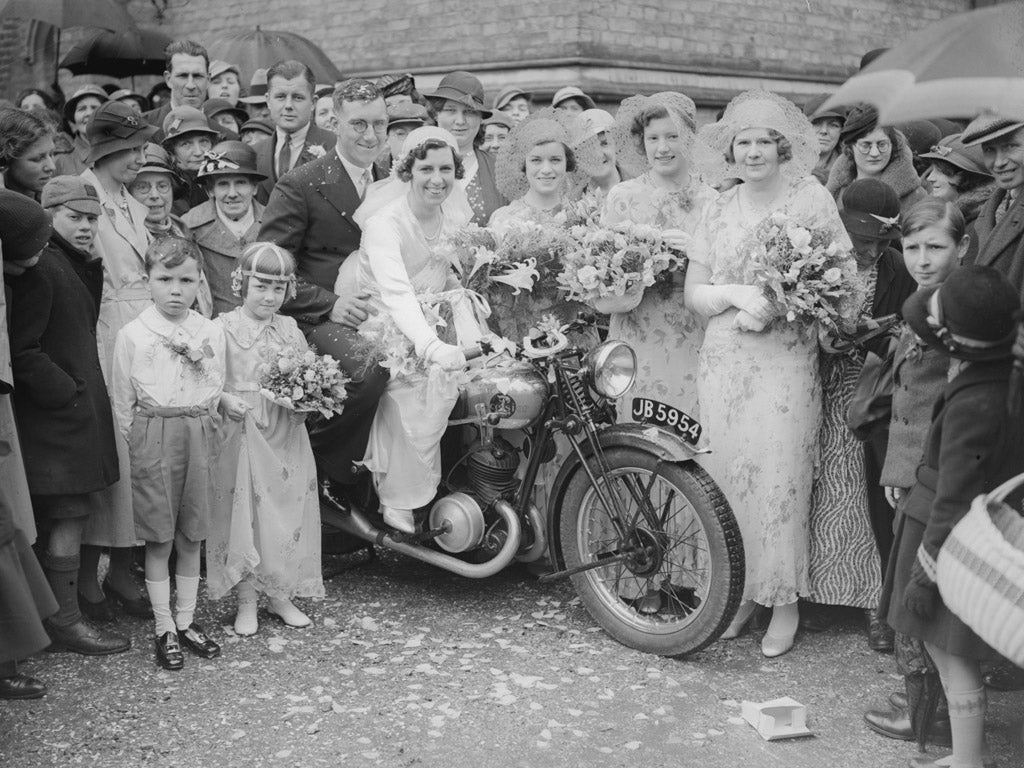The Tories' obsession with tax breaks for married couples is a total distraction from the real issues
Their view of marriage is pure nostalgia masquerading as compassion. Instead of ineffective tinkling with tax, they should focus on bigger sources of inequality

Your support helps us to tell the story
From reproductive rights to climate change to Big Tech, The Independent is on the ground when the story is developing. Whether it's investigating the financials of Elon Musk's pro-Trump PAC or producing our latest documentary, 'The A Word', which shines a light on the American women fighting for reproductive rights, we know how important it is to parse out the facts from the messaging.
At such a critical moment in US history, we need reporters on the ground. Your donation allows us to keep sending journalists to speak to both sides of the story.
The Independent is trusted by Americans across the entire political spectrum. And unlike many other quality news outlets, we choose not to lock Americans out of our reporting and analysis with paywalls. We believe quality journalism should be available to everyone, paid for by those who can afford it.
Your support makes all the difference.This week Conservative sources revealed that the infamous 118 equal marriage rebels might be “appeased” with a revival of that classic Tory policy: the marriage tax break.
A tax cut for a personal lifestyle choice might sound harmless but what it stands for is utterly preposterous. Nick de Bois MP calls it “a welcome return to recognising hard-working families through the tax system,” as if working hard and being unmarried are mutually exclusive. Even if the policy is well-intentioned, it’s an astonishing display of paternalistic arrogance.
Unquestioning
Unquestioning acceptance of conservative “evidence” about marriage is dangerous. It’s true that a correlation between parental marital status and “success” in life exists, but correlation isn’t causation: those most likely to stay married are often in the demographic groups whose children are most likely to do well in life anyway.
Rather than tackle the pressures on all families, whether married or not (sensible wages and affordable rent and heating might help) the Tories seem to think that one symptom of poverty – relationship pressures – is in fact the root cause of it, leading them to the extraordinary conclusion that those least in need of support should get it, as a reward for not needing it, a very problematic conclusion culminating in Iain Duncan-Smith’s intention to measure poverty by more than “income alone”.
Nor should we fall for the line that the tradition of marriage is based on a regard for children’s welfare. The Victorians sent children up chimneys and dumped them in workhouses, splitting up families. Some “pro-marriage” cultures have even forced children themselves into marriages. Far from being a hallmark of an advanced civilisation, marriage has historically been a patriarchal tool for the transference of property and capital down the male line, and a useful means to control female sexuality, reproduction, and basic autonomy.
However keenly we rightly celebrate equal, loving marriages, let’s not get dewy-eyed about the institution itself: in the UK, marriage only stopped guaranteeing the legal right to a woman’s body in 1991, when marital rape was outlawed.
What is it about marriage that makes conservatives who think poverty wages and tax avoidance are none of the government’s business imagine paternalistic politicians know how to raise your kids better than you do? Adults unmarried by choice take decisions to marry or divorce based on an understanding of their own family, with all the unique circumstances involved. And how can anyone back a tax on loneliness for bereaved partners who never remarry, or individuals who just never find love?
Trapped
It’s claimed our current system actively disincentives partnerships. But it has been found that more and more couples, especially with children, are trapped, financially unable to live apart, even after they’ve ended their relationship. Perhaps the rise in unhappy two-parent households is welcomed by these conservatives; perhaps they’re happy to see children growing up in an environment where they learn to associate relationships with misery, resentment, and fear.
They must care, though, that two women every week die of domestic violence. Cuts at local levels mean support centres are so stumped for cash that one in five has had to make reductions, with some even closing, despite the Home Office ringfencing nearly £40m for specialist services at the national level. Women’s Aid say that nearly 30,000 women were turned away from under-resourced refuge services last year. Worse, disabled women are twice as likely to be victims of domestic violence; women who may already be facing an onslaught of cuts to other fundamentals while trying to escape a partner on whom they may be physically dependent. We simply should not be making it harder for people to end bad relationships.
In the end, the quality of our human relationships is what defines the brokenness or otherwise of society, not our financial or property arrangements. As befuddling as this may be to some who sit on the Tory backbenches, the conditions under which we live, our levels of happiness, and whether or not we fulfil our capacity for love, these things are infinitely more instrumental in the shaping of our lives and morals than whether we qualify for a tax cut or not.
Join our commenting forum
Join thought-provoking conversations, follow other Independent readers and see their replies
Comments